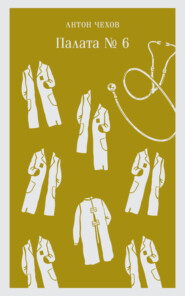По всем вопросам обращайтесь на: info@litportal.ru
(©) 2003-2024.
✖
The Darling and Other Stories
Настройки чтения
Размер шрифта
Высота строк
Поля
"Why are you crying?" asked Klotchkov.
He walked about the room in confusion, and said:
"You are a strange girl, really… Why, you know we shall have to part. We can't stay together for ever."
She had gathered together all her belongings, and turned to say good-bye to him, and he felt sorry for her.
"Shall I let her stay on here another week?" he thought. "She really may as well stay, and I'll tell her to go in a week;" and vexed at his own weakness, he shouted to her roughly:
"Come, why are you standing there? If you are going, go; and if you don't want to, take off your coat and stay! You can stay!"
Anyuta took off her coat, silently, stealthily, then blew her nose also stealthily, sighed, and noiselessly returned to her invariable position on her stool by the window.
The student drew his textbook to him and began again pacing from corner to corner. "The right lung consists of three parts," he repeated; "the upper part, on anterior wall of thorax, reaches the fourth or fifth rib.."
In the passage some one shouted at the top of his voice: "Grigory! The samovar!"
THE TWO VOLODYAS
"LET me; I want to drive myself! I'll sit by the driver!" Sofya Lvovna said in a loud voice. "Wait a minute, driver; I'll get up on the box beside you."
She stood up in the sledge, and her husband, Vladimir Nikititch, and the friend of her childhood, Vladimir Mihalovitch, held her arms to prevent her falling. The three horses were galloping fast.
"I said you ought not to have given her brandy," Vladimir Nikititch whispered to his companion with vexation. "What a fellow you are, really!"
The Colonel knew by experience that in women like his wife, Sofya Lvovna, after a little too much wine, turbulent gaiety was followed by hysterical laughter and then tears. He was afraid that when they got home, instead of being able to sleep, he would have to be administering compresses and drops.
"Wo!" cried Sofya Lvovna. "I want to drive myself!"
She felt genuinely gay and triumphant. For the last two months, ever since her wedding, she had been tortured by the thought that she had married Colonel Yagitch from worldly motives and, as it is said, _par dépit_; but that evening, at the restaurant, she had suddenly become convinced that she loved him passionately. In spite of his fifty-four years, he was so slim, agile, supple, he made puns and hummed to the gipsies' tunes so charmingly. Really, the older men were nowadays a thousand times more interesting than the young. It seemed as though age and youth had changed parts. The Colonel was two years older than her father, but could there be any importance in that if, honestly speaking, there were infinitely more vitality, go, and freshness in him than in herself, though she was only twenty-three?
"Oh, my darling!" she thought. "You are wonderful!"
She had become convinced in the restaurant, too, that not a spark of her old feeling remained. For the friend of her childhood, Vladimir Mihalovitch, or simply Volodya, with whom only the day before she had been madly, miserably in love, she now felt nothing but complete indifference. All that evening he had seemed to her spiritless, torpid, uninteresting, and insignificant, and the _sangfroid_ with which he habitually avoided paying at restaurants on this occasion revolted her, and she had hardly been able to resist saying, "If you are poor, you should stay at home." The Colonel paid for all.
Perhaps because trees, telegraph posts, and drifts of snow kept flitting past her eyes, all sorts of disconnected ideas came rushing into her mind. She reflected: the bill at the restaurant had been a hundred and twenty roubles, and a hundred had gone to the gipsies, and to-morrow she could fling away a thousand roubles if she liked; and only two months ago, before her wedding, she had not had three roubles of her own, and had to ask her father for every trifle. What a change in her life!
Her thoughts were in a tangle. She recalled, how, when she was a child of ten, Colonel Yagitch, now her husband, used to make love to her aunt, and every one in the house said that he had ruined her. And her aunt had, in fact, often come down to dinner with her eyes red from crying, and was always going off somewhere; and people used to say of her that the poor thing could find no peace anywhere. He had been very handsome in those days, and had an extraordinary reputation as a lady-killer. So much so that he was known all over the town, and it was said of him that he paid a round of visits to his adorers every day like a doctor visiting his patients. And even now, in spite of his grey hair, his wrinkles, and his spectacles, his thin face looked handsome, especially in profile.
Sofya Lvovna's father was an army doctor, and had at one time served in the same regiment with Colonel Yagitch. Volodya's father was an army doctor too, and he, too, had once been in the same regiment as her father and Colonel Yagitch. In spite of many amatory adventures, often very complicated and disturbing, Volodya had done splendidly at the university, and had taken a very good degree. Now he was specialising in foreign literature, and was said to be writing a thesis. He lived with his father, the army doctor, in the barracks, and had no means of his own, though he was thirty. As children Sofya and he had lived under the same roof, though in different flats. He often came to play with her, and they had dancing and French lessons together. But when he grew up into a graceful, remarkably handsome young man, she began to feel shy of him, and then fell madly in love with him, and had loved him right up to the time when she was married to Yagitch. He, too, had been renowned for his success with women almost from the age of fourteen, and the ladies who deceived their husbands on his account excused themselves by saying that he was only a boy. Some one had told a story of him lately that when he was a student living in lodgings so as to be near the university, it always happened if one knocked at his door, that one heard his footstep, and then a whispered apology: "_Pardon, je ne suis pas setul._" Yagitch was delighted with him, and blessed him as a worthy successor, as Derchavin blessed Pushkin; he appeared to be fond of him. They would play billiards or picquet by the hour together without uttering a word, if Yagitch drove out on any expedition he always took Volodya with him, and Yagitch was the only person Volodya initiated into the mysteries of his thesis. In earlier days, when Yagitch was rather younger, they had often been in the position of rivals, but they had never been jealous of one another. In the circle in which they moved Yagitch was nicknamed Big Volodya, and his friend Little Volodya.
Besides Big Volodya, Little Volodya, and Sofya Lvovna, there was a fourth person in the sledge-Margarita Alexandrovna, or, as every one called her, Rita, a cousin of Madame Yagitch-a very pale girl over thirty, with black eyebrows and a pince-nez, who was for ever smoking cigarettes, even in the bitterest frost, and who always had her knees and the front of her blouse covered with cigarette ash. She spoke through her nose, drawling every word, was of a cold temperament, could drink any amount of wine and liquor without being drunk, and used to tell scandalous anecdotes in a languid and tasteless way. At home she spent her days reading thick magazines, covering them with cigarette ash, or eating frozen apples.
"Sonia, give over fooling," she said, drawling. "It's really silly."
As they drew near the city gates they went more slowly, and began to pass people and houses. Sofya Lvovna subsided, nestled up to her husband, and gave herself up to her thoughts. Little Volodya sat opposite. By now her light-hearted and cheerful thoughts were mingled with gloomy ones. She thought that the man sitting opposite knew that she loved him, and no doubt he believed the gossip that she married the Colonel _par dépit_. She had never told him of her love; she had not wanted him to know, and had done her best to hide her feeling, but from her face she knew that he understood her perfectly – and her pride suffered. But what was most humiliating in her position was that, since her wedding, Volodya had suddenly begun to pay her attention, which he had never done before, spending hours with her, sitting silent or chattering about trifles; and even now in the sledge, though he did not talk to her, he touched her foot with his and pressed her hand a little. Evidently that was all he wanted, that she should be married; and it was evident that he despised her and that she only excited in him an interest of a special kind as though she were an immoral and disreputable woman. And when the feeling of triumph and love for her husband were mingled in her soul with humiliation and wounded pride, she was overcome by a spirit of defiance, and longed to sit on the box, to shout and whistle to the horses.
Just as they passed the nunnery the huge hundred-ton bell rang out. Rita crossed herself.
"Our Olga is in that nunnery," said Sofya Lvovna, and she, too, crossed herself and shuddered.
"Why did she go into the nunnery?" said the Colonel.
"_Par dépit_," Rita answered crossly, with obvious allusion to Sofya's marrying Yagitch. "_Par dépit_ is all the fashion nowadays. Defiance of all the world. She was always laughing, a desperate flirt, fond of nothing but balls and young men, and all of a sudden off she went-to surprise every one!"
"That's not true," said Volodya, turning down the collar of his fur coat and showing his handsome face. "It wasn't a case of _par dépit_; it was simply horrible, if you like. Her brother Dmitri was sent to penal servitude, and they don't know where he is now. And her mother died of grief."
He turned up his collar again.
"Olga did well," he added in a muffled voice. "Living as an adopted child, and with such a paragon as Sofya Lvovna, – one must take that into consideration too!"
Sofya Lvovna heard a tone of contempt in his voice, and longed to say something rude to him, but she said nothing. The spirit of defiance came over her again; she stood up again and shouted in a tearful voice:
"I want to go to the early service! Driver, back! I want to see Olga."
They turned back. The nunnery bell had a deep note, and Sofya Lvovna fancied there was something in it that reminded her of Olga and her life. The other church bells began ringing too. When the driver stopped the horses, Sofya Lvovna jumped out of the sledge and, unescorted and alone, went quickly up to the gate.
"Make haste, please!" her husband called to her. "It's late already."
She went in at the dark gateway, then by the avenue that led from the gate to the chief church. The snow crunched under her feet, and the ringing was just above her head, and seemed to vibrate through her whole being. Here was the church door, then three steps down, and an ante-room with ikons of the saints on both sides, a fragrance of juniper and incense, another door, and a dark figure opening it and bowing very low. The service had not yet begun. One nun was walking by the ikon-screen and lighting the candles on the tall standard candlesticks, another was lighting the chandelier. Here and there, by the columns and the side chapels, there stood black, motionless figures. "I suppose they must remain standing as they are now till the morning," thought Sofya Lvovna, and it seemed to her dark, cold, and dreary-drearier than a graveyard. She looked with a feeling of dreariness at the still, motionless figures and suddenly felt a pang at her heart. For some reason, in one short nun, with thin shoulders and a black kerchief on her head, she recognised Olga, though when Olga went into the nunnery she had been plump and had looked taller. Hesitating and extremely agitated, Sofya Lvovna went up to the nun, and looking over her shoulder into her face, recognised her as Olga.
"Olga!" she cried, throwing up her hands, and could not speak from emotion. "Olga!"
The nun knew her at once; she raised her eyebrows in surprise, and her pale, freshly washed face, and even, it seemed, the white headcloth that she wore under her wimple, beamed with pleasure.
"What a miracle from God!" she said, and she, too, threw up her thin, pale little hands.
Sofya Lvovna hugged her and kissed her warmly, and was afraid as she did so that she might smell of spirits.
"We were just driving past, and we thought of you," she said, breathing hard, as though she had been running. "Dear me! How pale you are! I.. I'm very glad to see you. Well, tell me how are you? Are you dull?"
Sofya Lvovna looked round at the other nuns, and went on in a subdued voice:
"There've been so many changes at home.. you know, I'm married to Colonel Yagitch. You remember him, no doubt… I am very happy with him."
"Well, thank God for that. And is your father quite well?"
"Yes, he is quite well. He often speaks of you. You must come and see us during the holidays, Olga, won't you?"
"I will come," said Olga, and she smiled. "I'll come on the second day."
Sofya Lvovna began crying, she did not know why, and for a minute she shed tears in silence, then she wiped her eyes and said:
"Rita will be very sorry not to have seen you. She is with us too. And Volodya's here. They are close to the gate. How pleased they'd be if you'd come out and see them. Let's go out to them; the service hasn't begun yet."
"Let us," Olga agreed. She crossed herself three times and went out with Sofya Lvovna to the entrance.
"So you say you're happy, Sonitchka?" she asked when they came out at the gate.

















